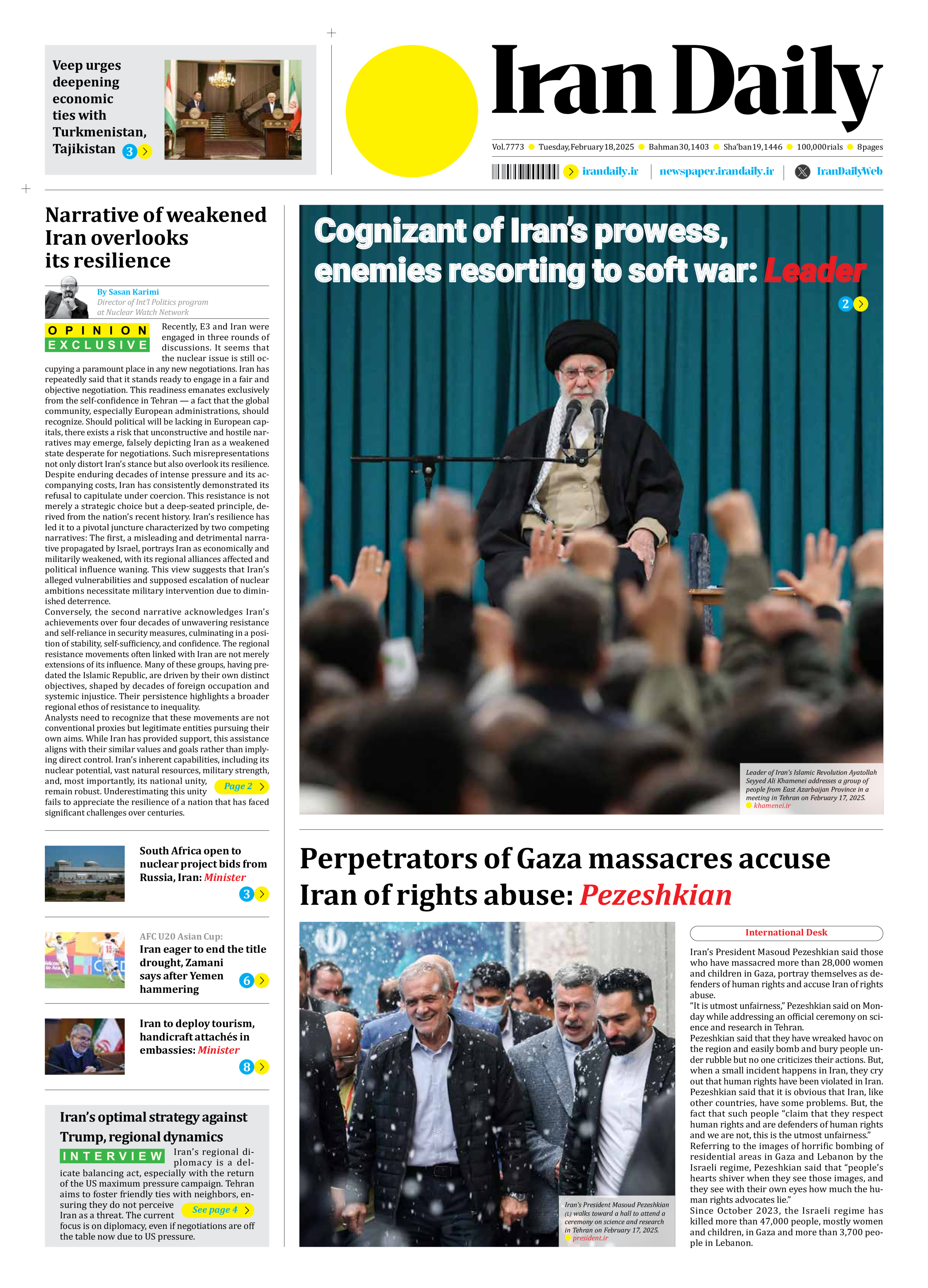
Narrative of weakened Iran overlooks its resilience
By Sasan Karimi
Director of Int’l Politics program
at Nuclear Watch Network
Recently, E3 and Iran were engaged in three rounds of discussions. It seems that the nuclear issue is still occupying a paramount place in any new negotiations. Iran has repeatedly said that it stands ready to engage in a fair and objective negotiation. This readiness emanates exclusively from the self-confidence in Tehran — a fact that the global community, especially European administrations, should recognize. Should political will be lacking in European capitals, there exists a risk that unconstructive and hostile narratives may emerge, falsely depicting Iran as a weakened state desperate for negotiations. Such misrepresentations not only distort Iran’s stance but also overlook its resilience.
Despite enduring decades of intense pressure and its accompanying costs, Iran has consistently demonstrated its refusal to capitulate under coercion. This resistance is not merely a strategic choice but a deep-seated principle, derived from the nation’s recent history. Iran’s resilience has led it to a pivotal juncture characterized by two competing narratives: The first, a misleading and detrimental narrative propagated by Israel, portrays Iran as economically and militarily weakened, with its regional alliances affected and political influence waning. This view suggests that Iran’s alleged vulnerabilities and supposed escalation of nuclear ambitions necessitate military intervention due to diminished deterrence.
Conversely, the second narrative acknowledges Iran’s achievements over four decades of unwavering resistance and self-reliance in security measures, culminating in a position of stability, self-sufficiency, and confidence. The regional resistance movements often linked with Iran are not merely extensions of its influence. Many of these groups, having predated the Islamic Republic, are driven by their own distinct objectives, shaped by decades of foreign occupation and systemic injustice. Their persistence highlights a broader regional ethos of resistance to inequality.
Analysts need to recognize that these movements are not conventional proxies but legitimate entities pursuing their own aims. While Iran has provided support, this assistance aligns with their similar values and goals rather than implying direct control. Iran’s inherent capabilities, including its nuclear potential, vast natural resources, military strength, and, most importantly, its national unity, remain robust. Underestimating this unity fails to appreciate the resilience of a nation that has faced significant challenges over centuries.
Page 2







